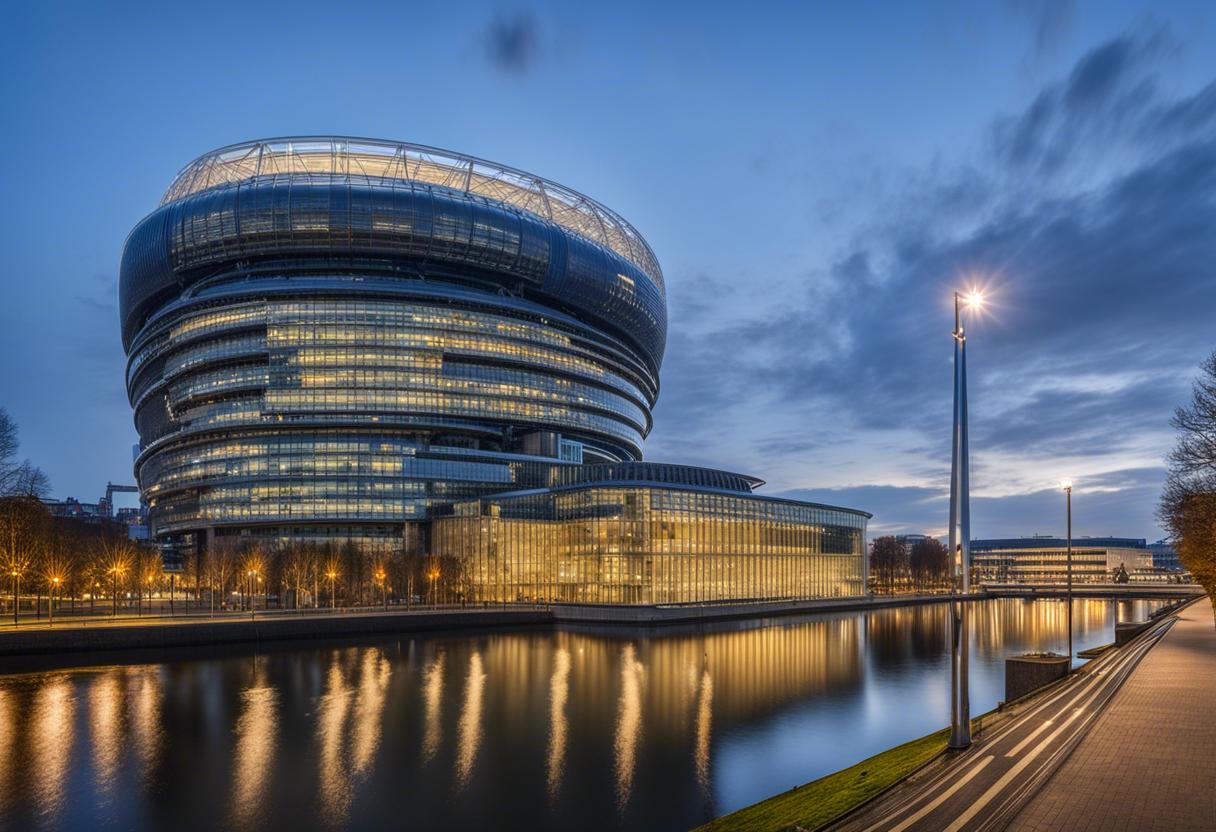In the coming days, impending conversations among political factions are projected to shape the balance of power in the next European Parliament. This follows the recent elections that led to a notable political shift towards the right. Despite this, the present majority governmental coalition comprising of the centre-right European People’s Party (EPP), the centre-left Socialists and Democrats (S&D), and the centrist faction of Renew is likely to remain in place, maintaining a surplus of approximately 40 votes.
Election results from 26 EU nations indicate approximately 400 out of the accessible 720 seats in the upcoming European Parliament have been acquired by the three central affiliations.
While the remaining votes are being processed, it is anticipated that different factions would attempt to add new and independent MEPs or attract those who could potentially switch allegiance to enhance their seating numbers. Notably, the EPP is predicted to instigate talks with S&D and Renew in the foreseeable future, with the focus on extending their previous governing coalition.
The embroilment within the Renew faction resulted from the controversial choice of the Dutch centrist party VVD to enter a coalition with Geert Wilders’s far-right Freedom Party in the Netherlands. Strong objections and assertions were made that this move empowered the far right. Speculations even arose that the EU faction might contemplate excluding VVD, which secured four seats in the recent elections. Prominent Renew politicians declared they would address this issue post-elections. The Renew coalition lost around one-fifth of its MEPs, largely because of a rigorous defeat in France where far-right National Rally (RN) achieved double the seats won by President Emmanuel Macron’s centrist coalition.
Despite severe losses in the elections, French MEP and Macron associate, Valerie Hayer, who was one of Renew’s primary candidates, stated that the group would carry on their battle against the far right. She made this declaration in Brussels on Monday, also asserting that a decision concerning VVD’s membership in Renew will be reached within the next couple of weeks.
Rumours suggest that the divided parties leaning towards far right may consider restructuring or merging to establish a more united and powerful opposition in the parliament. The hard-line rightist and extreme right groups have made impressive strides in the recent elections and are predicted to amplify their opposition stance. The election saw approximately 160 MEPs from right-wing nationalist, ultra-conservative, populist, and far-right parties emerging victoriously.
As the elections were nearing to an end, Marine Le Pen, the leader of the French extreme right, expressed her willingness to collaborate with Italy’s Brothers of Italy (Fratelli d’Italia), headed by Giorgia Meloni. Brothers of Italy, which garnered 24 seats and emerged as Italy’s prominent party, is currently a significant participant of the hard-line right European Conservatives and Reformists (ECR) group that secured 73 seats.
Le Pen’s expanded National Rally party is a predominant player within the far-right Identity and Democracy association, having won 58 seats. Hungary’s Prime Minister Viktor Orban’s rightist Fidesz party, which currently is unattached, might consider teaming up with right wing allies.
All these political groups are scheduled to meet later in the month to decide on several matters such as Members’ seating placements, distribution of responsibilities and role assignments for committees in the upcoming parliament.

